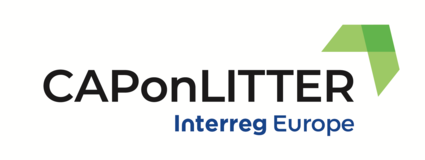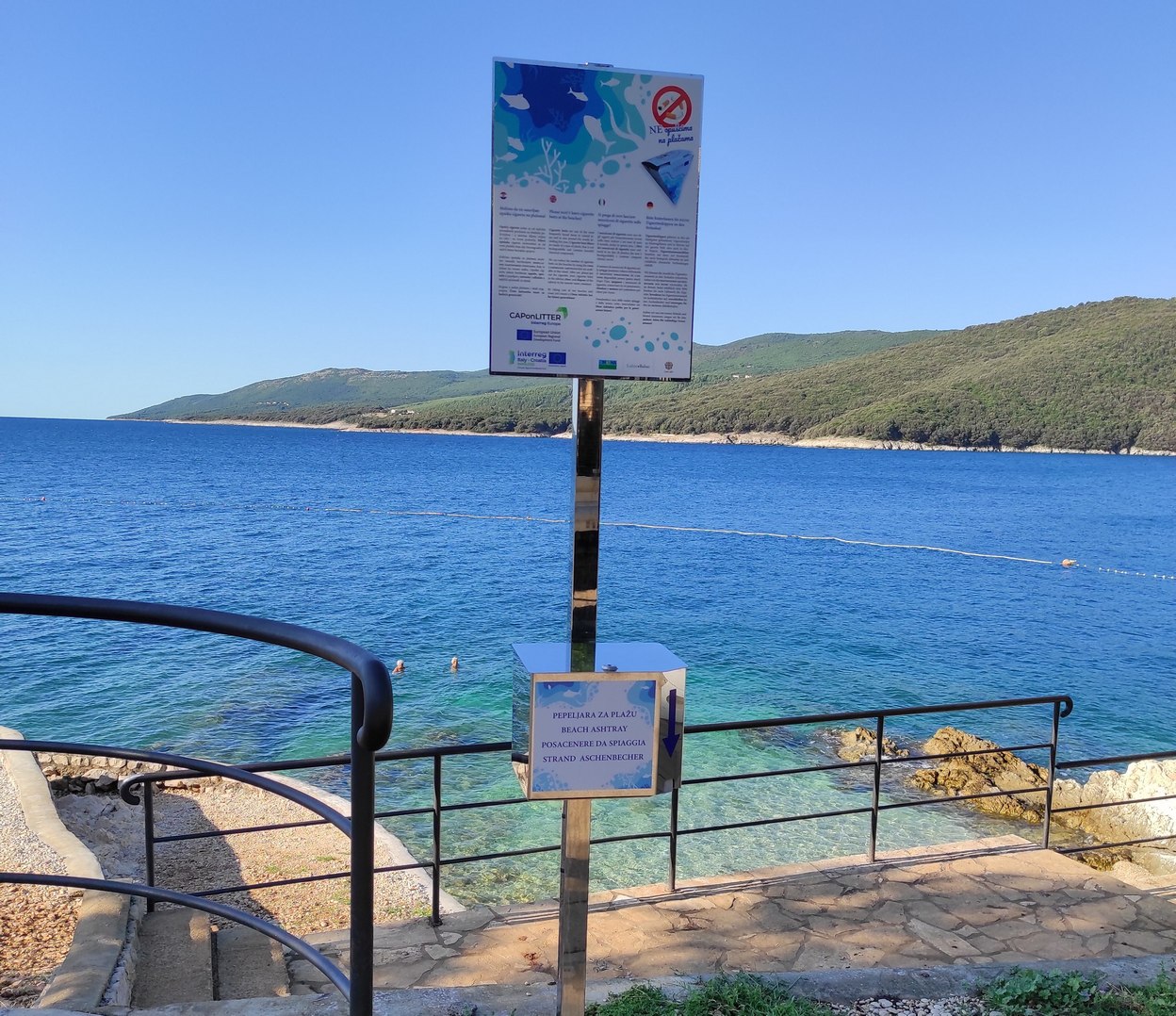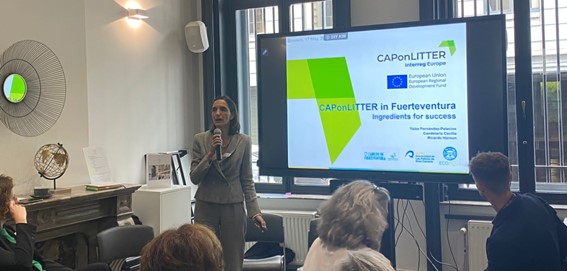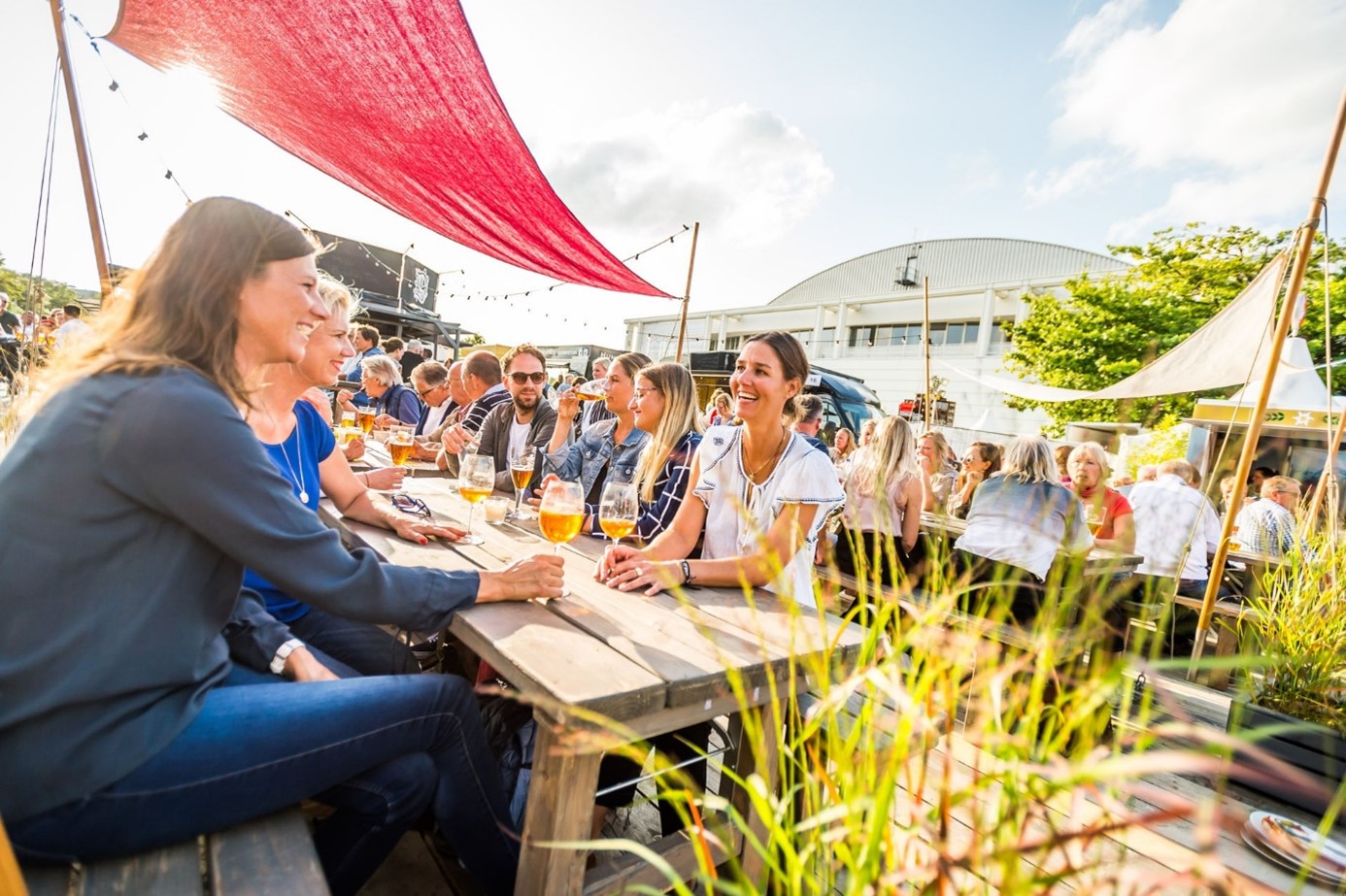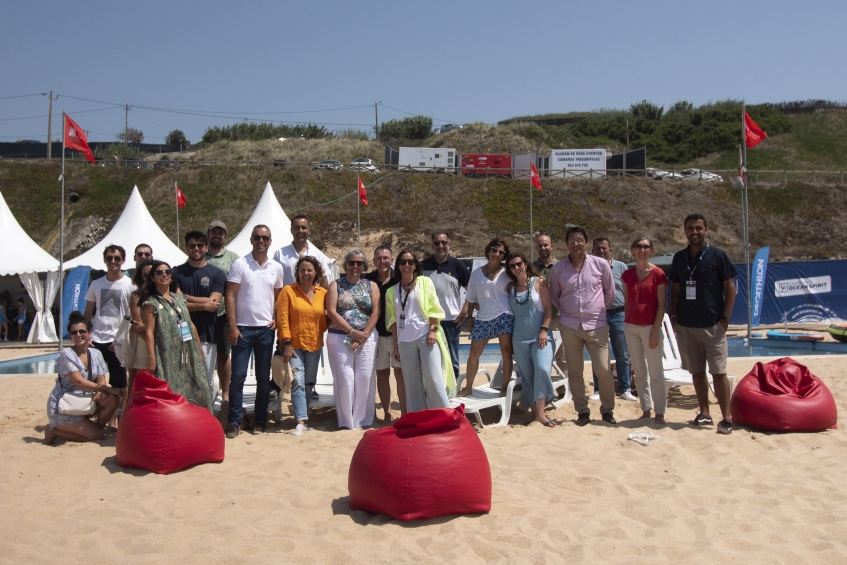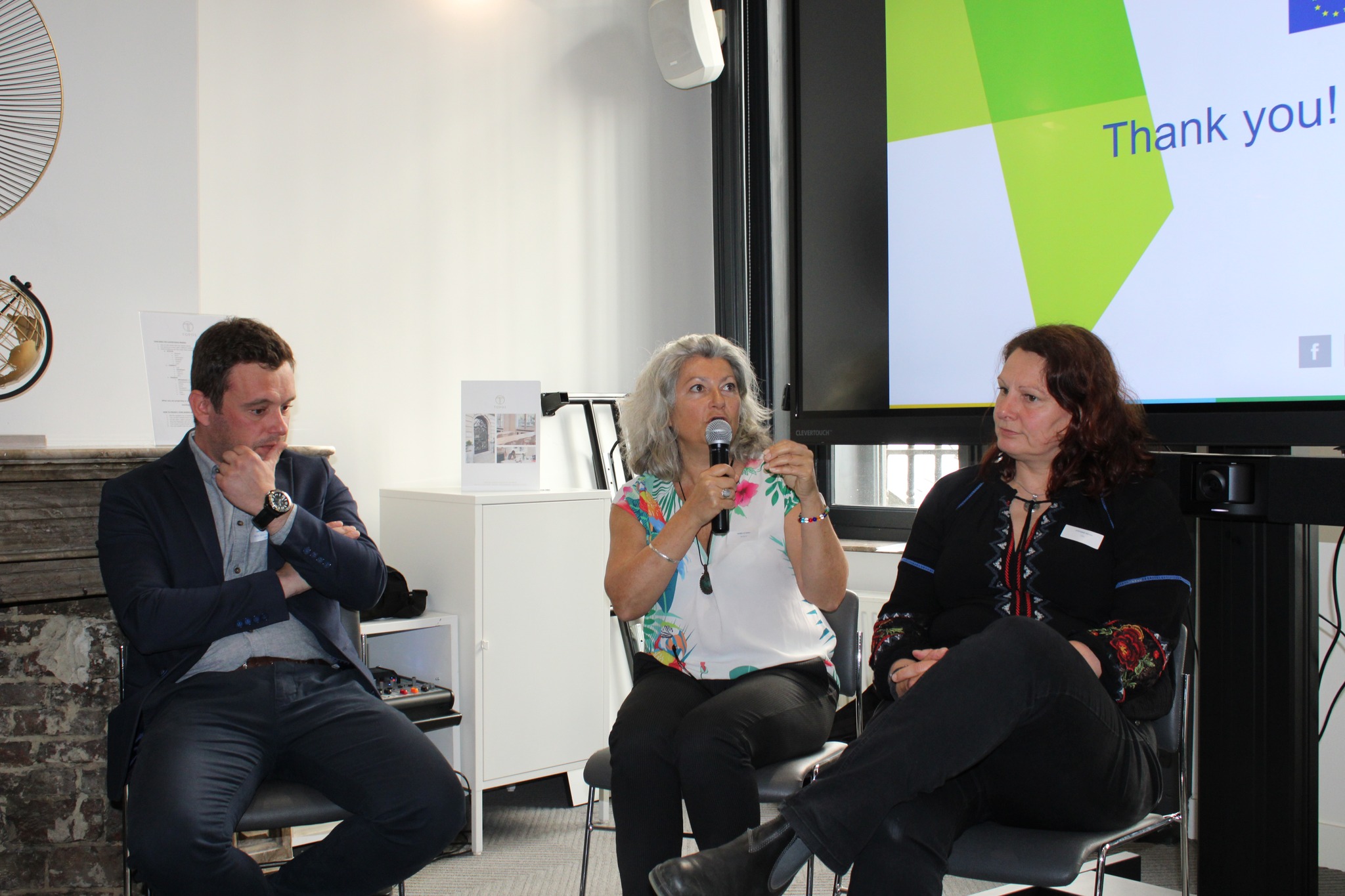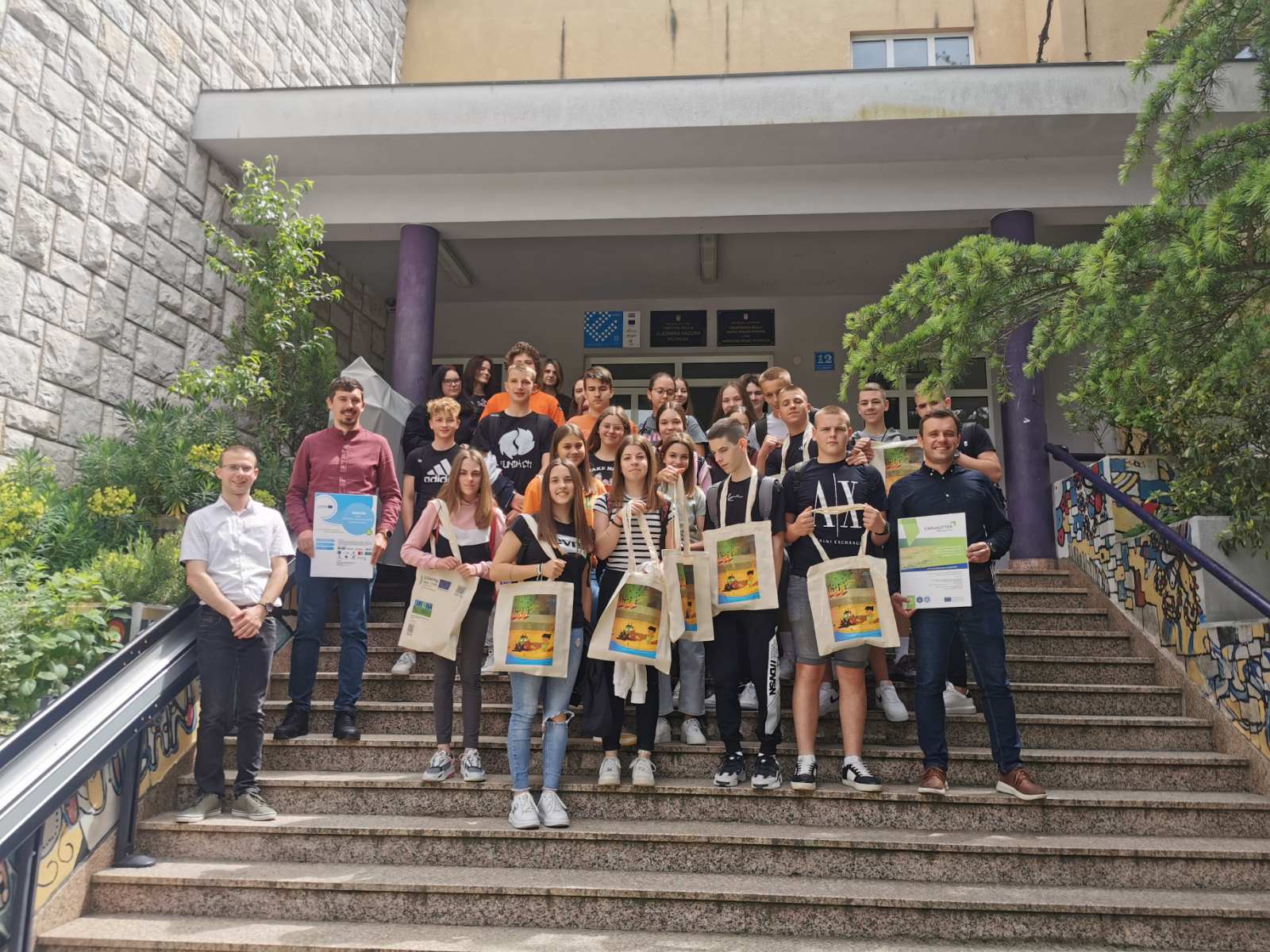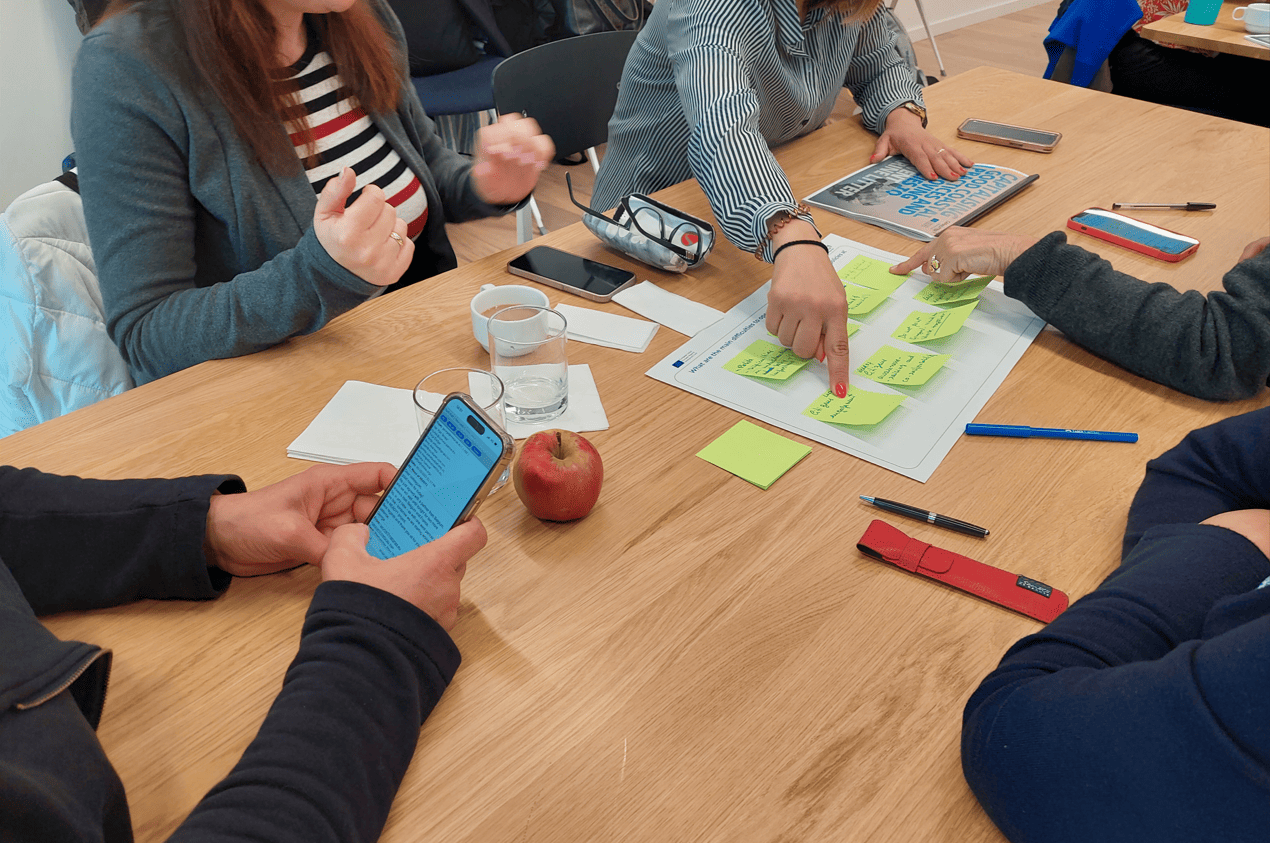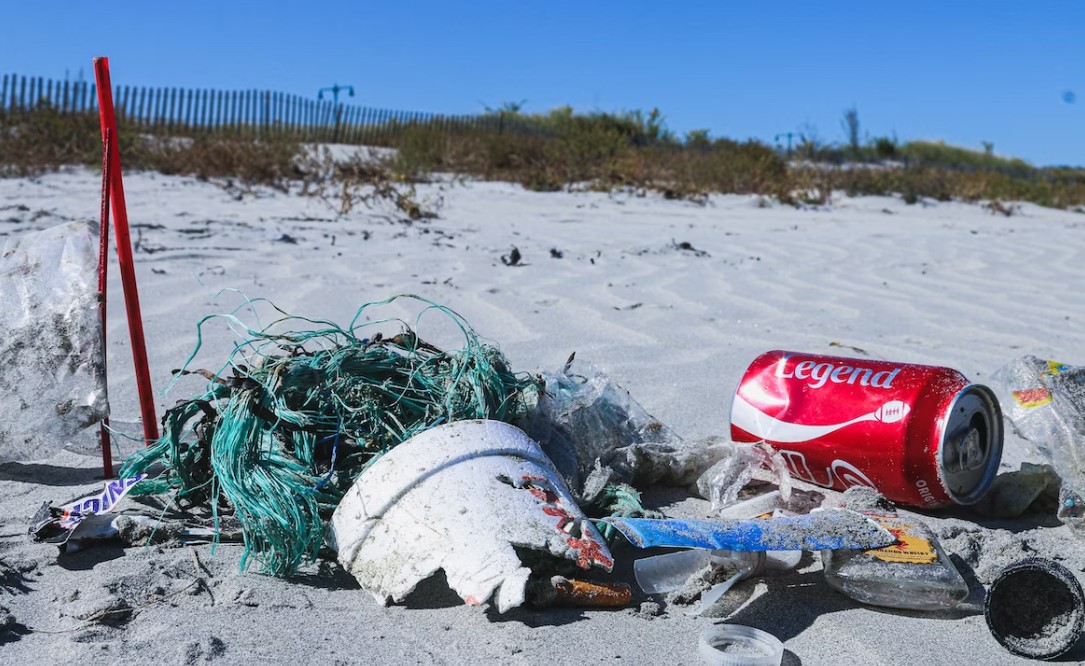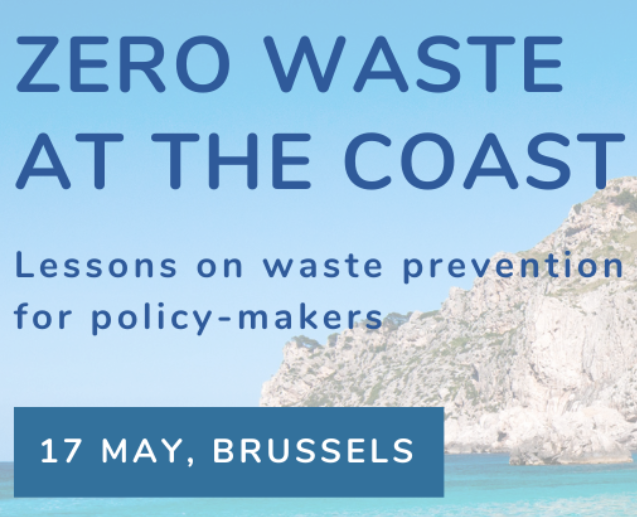After 3 years, the CAP on LITTER project concluded its work by organising a high-level dissemination event in Brussels back in May. The in-person event was organised by Zero Waste Europe, one of the project partners, and looked at some of Europe’s best practice initiatives on waste prevention implemented by coastal municipalities and regions.
The event brought over 65 people together to hear from each of the project partners about the best practices they have seen and how this has influenced each of their respective regional action plans. Each partner also attended the event with some of their local stakeholders, so that policy-makers based in Brussels could connect with the specific actors who have been behind these best practices, helping inform these individuals how the results and impact of local initiatives can best inform key upcoming legislative decisions on plastic production, use and waste.
The event began with a presentation by Dr Jose Carlos Ferreira, lead coordinator of the CAP on LITTER project by FCT-NOVA. Attendees were introduced to the project’s aims and target areas, with Dr Ferreira highlighting the latest data that showcased how marine litter remains the biggest waste challenge for most coastal authorities, a problem only exacerbated by the COVID-19 pandemic.
Anne Rocheteau from Interreg Europe(IE) then provided a detailed overview of the work IE supports across Europe and the upcoming opportunities available to other entities who are seeking funding for diverse, cross-regional and collaborative projects, such as CAP on LITTER.
The event itself was split into two panel discussions. During the first half, project partners presented on their action plans that have informed regional public policies on better waste prevention of key fractions of waste, such as plastic food and drink containers originating from beach facilities and recreational events. Presentations were given by the following individuals and organisations:
- Stefanie Werner, Federal Environment Agency (UBA), department protection of the oceans and polar regions
- Isabel Moura, Senior Officer Department of Foreign Affairs - Portuguese Environment Agency (APA)
- Isabelle Poitou, Biologist in Urban Planning and Development - Association MerTerre
- Eleni Tzagkaraki, Head of civil protection of Heraklion in the Region of Crete
- Andrea Poldrugovac, Expert Associate, IRENA
- Yaiza Fernández-Palacios, Researcher at IU-ECOAQUA (ULPGC)
- Venceslava Yanchovska, Manager at Norwegian state agency - Innovation Norway
Presentations given by each speaker can be found in the project library.
The second half of the event included a more informal panel discussion to go into greater detail on what these best practices should mean for policy-making here in Brussels The conference and this discussion in particular was especially timely, given the upcoming discussions around 2 key pieces of legislation that will impact plastic waste generation, the major source of marine-based pollution - the EU Packaging Waste Regulation (PPWR) and the second round of negotiations for the UN’s global plastics treaty.
For the second panel, discussions were led by expert representatives from DG MARE of the European Commission, the European Environmental Agency, CITEO (the French producer responsibility organisation) and Zero Waste Europe. The discussions provided an excellent overview over some of the key policies that the panellists believe are needed in order to build a strong framework that enables coastal authorities and their local stakeholders to accelerate the transition away from single-use to reuse in order to prevent the most common marine litter items, which are single-use plastics.
Conclusions
Looking back, it's clear to see that the event was a success in terms of putting both CAP on LITTER and the need for greater action on marine litter back on the agenda of key stakeholders in Brussels. For the project partners, it was a welcome reunion for everyone involved, as the project has not been able to fulfill its original vision of regularly bringing stakeholders together for peer-to-peer learning via in-person events. Due to the pandemic, the majority of these had to be done remotely. However, the event showcases the impact that has been had during this project despite the challenges posed by COVID-19. The partners have each been successful in individually pushing their regional action plans to include more ambitious goals on waste prevention, due to the exchange of learning from meeting with the existing best practices that are being implemented at the local level.
Of course, the issue of marine litter is still as prevalent as it was when this project started. So our work will and must continue, as project partners now begin to work with their authorities to put the action plans into practice and enforce the measures that are currently only objectives on paper.
Written by Jack McQuibban
Head of Local Zero Waste Implementation, Zero Waste Europe
